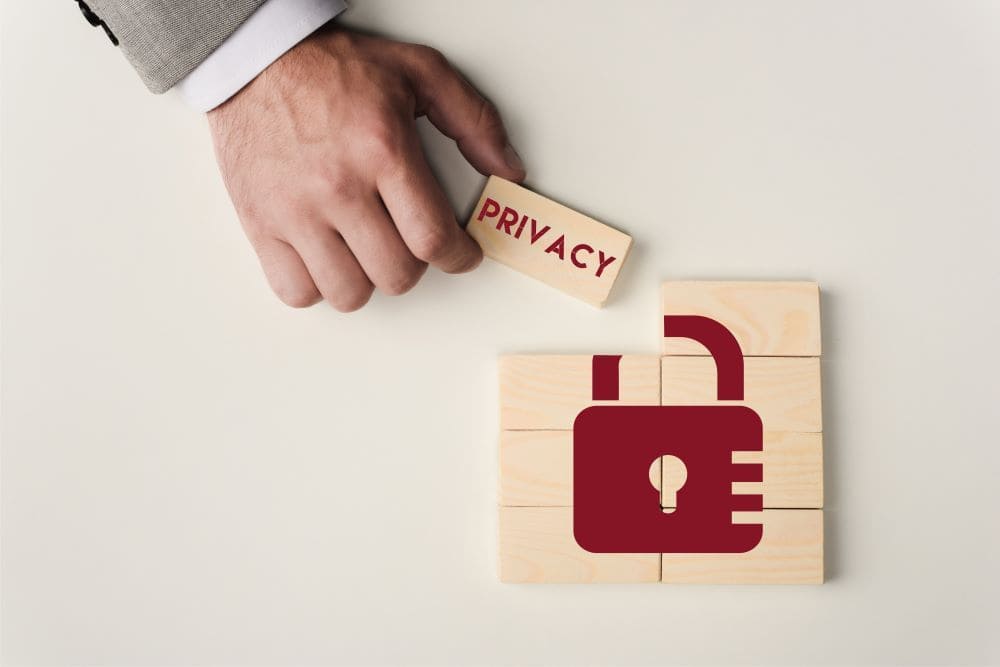
Yes, you can sue for invasion of privacy if someone has violated your personal space without consent in a way that’s offensive and detrimental to you. In brief, if your private life has been intruded upon illegally, causing distress, you have the right to seek justice. “Can I sue someone for invasion of privacy?” is a common question, and in this article, we will discuss what qualifies as a privacy invasion and how you can take legal action. Read on to find out more.
What is Invasion of Privacy – Legally?
Invasion of privacy is a legal concept that encompasses various actions that intrude upon an individual’s personal space or violate their reasonable expectation of privacy. While privacy laws can vary from state to state, there are generally four recognized categories of invasion of privacy:
Intrusion upon seclusion: This occurs when someone intentionally intrudes, physically or otherwise, into your private affairs or seclusion in a manner that would be highly offensive to a reasonable person.
Public disclosure of private facts: This involves the dissemination of private, intimate, or embarrassing information about an individual without their consent, which is not of legitimate public concern.
False light: False light invasion of privacy occurs when someone publishes information about an individual that portrays them in a false or misleading manner, leading to public embarrassment, ridicule, or other emotional harm.
Appropriation of likeness: This refers to the unauthorized use of an individual’s name, image, or likeness for commercial gain without their consent.
Invasion of Privacy Law
Invasion of privacy laws exist at both the state and federal levels, providing legal recourse for individuals whose privacy has been violated. However, it’s essential to understand that privacy laws can be complex and nuanced, often requiring careful analysis of the specific circumstances involved.
At the federal level, the Federal Wiretap Act and the Stored Communications Act regulate the interception of electronic communications and the unauthorized access to stored electronic communications, respectively. These laws protect against unauthorized wiretapping, interception of emails, and other forms of electronic surveillance.
Examples of Invasion Of Privacy
To understand invasion of privacy better, let’s look at a few examples:
Secretly recording a conversation: Suppose you record a private conversation between you and a friend without their knowledge or consent. In that case, you may be liable for invasion of privacy, especially if the conversation took place in a private setting.
Spying on someone using hidden cameras: Installing hidden cameras in someone’s bedroom or bathroom to observe them without their knowledge would constitute a severe invasion of privacy.
Sharing personal information without consent: If you share private details about someone’s medical history or personal finances without their permission, you could be violating their privacy rights.
Entering someone’s home without permission: If you enter someone’s home without their consent, you’re intruding upon their private space and could be liable for invasion of privacy.
Can I Sue for Invasion of Privacy?
Yes, you can sue for invasion of privacy. Invasion of privacy occurs when someone violates your reasonable expectation of privacy or engages in conduct that intrudes upon your personal space or privacy rights. If you believe your privacy has been invaded, you have the right to file a civil lawsuit against the perpetrator.
When Can You Sue Someone for Invasion of Privacy?
You can sue someone for invasion of privacy when they have violated your reasonable expectation of privacy or engaged in conduct that constitutes one of the recognized forms of invasion of privacy. Some common scenarios where you might have a case for invasion of privacy include:
Recording without consent: If someone records you without your consent, especially in a private setting where you have a reasonable expectation of privacy, you may have grounds for a lawsuit.
Surveillance: Unauthorized surveillance, such as spying on someone with hidden cameras or drones, can be grounds for a personal injury lawsuit.
Publication of private information: If someone shares your confidential information without your consent, you may be able to sue them for invasion of privacy.
Intrusion into private spaces: If someone enters your home or other private spaces without your permission, you may have a case for invasion of privacy.
How Can I Sue Someone for Invasion of Privacy?
The process of suing someone for invasion of privacy can be complex, but with the right understanding and preparation, it’s certainly achievable. To sue for invasion of privacy in Nevada, you must establish that there was an intentional intrusion into your personal life without just cause, which can be categorized under one of the four distinct causes of action:
Intrusion upon seclusion
Appropriation of likeness or identity
Public disclosure of private facts
Portrayal in a false light
Once you’ve identified the form of invasion and gathered your evidence, you’ll need to:
Familiarize yourself with the specific state laws concerning invasion of privacy, as they can vary from state to state.
Document any emotional or financial harm, as this may determine the compensation you seek.
Consult with a personal injury lawyer to assess the viability of the privacy claims and to understand the legal process involved in bringing a lawsuit.
Establishing Damages
Invasion of privacy can result in various damages, including:
Emotional distress: If the invasion of privacy caused you emotional distress, you may be entitled to damages for pain and suffering.
Reputational harm: If your reputation was damaged as a result of the invasion of privacy, you may be entitled to damages for defamation or other harm to your reputation.
Financial losses: If you suffered financial losses as a result of the invasion of privacy, such as lost income or medical expenses, you may be entitled to compensation for these losses.
What Remedies Are Available for Invasion of Privacy?
If you successfully prove invasion of privacy, you may be entitled to various remedies, including:
Monetary damages: You may receive compensation for the harm caused by the invasion of privacy, including damages for emotional distress, reputational harm, and financial losses.
Injunction: In some cases, the court may issue an injunction ordering the defendant to stop engaging in the conduct that violated your privacy rights.
Punitive damages: In cases where the defendant’s conduct was particularly egregious, the court may award punitive damages to punish the defendant and deter similar conduct in the future.
Penalties for Invasion of Privacy Illegally
The penalties for invasion of privacy can vary depending on the specific circumstances of the case and the laws of the jurisdiction involved. In general, however, invasion of privacy can result in both civil and criminal penalties.
Civil Liability: If you are found liable for invasion of privacy in a civil lawsuit, you may be ordered to pay monetary damages to the victim and potentially other remedies as well.
Criminal Consequences: In some cases, invasion of privacy can also result in criminal charges. For example, unauthorized wiretapping or electronic surveillance may be prosecuted as criminal offenses under state or federal law.
Preventing Invasion of Privacy
While it’s important to know your legal rights in case of a privacy invasion, prevention is always the best course of action. Using strong, unique passwords for different online accounts and changing them frequently is a critical method for preventing unauthorized access and protecting against privacy invasions. Installing and regularly updating security software, like anti-spyware, anti-virus scanners, and firewalls, is also crucial for safeguarding your privacy on computers.
Some fundamental practices in privacy protection include:
Regularly checking credit reports and confirming the accuracy of the information
Properly destroying personal information by shredding documents and tearing apart expired cards before disposal
Remaining vigilant against scams and verifying the legitimacy of unexpected requests for personal information
By following these practices, you can defend against unauthorized use of personal financial data and prevent identity theft.
How an Attorney Can Help You with an Invasion of Privacy Case
Dealing with an invasion of privacy can be an emotionally challenging and legally complex experience. If you find yourself in such a situation, seeking the assistance of an experienced attorney can be invaluable. Here’s how an attorney can help you navigate an invasion of privacy case:
Understanding of Privacy Laws: Attorneys specializing in privacy law have a deep understanding of both federal and state privacy laws, including the nuances and intricacies that may apply to your case.
Case Assessment: An attorney can assess the strength of your case by evaluating the evidence, identifying legal issues, and determining the likelihood of success in court.
Advice on Legal Options: Based on their expertise, an attorney can advise you on the best course of action, whether it involves pursuing a lawsuit, negotiating a settlement, or seeking other remedies.
Filing Procedures: Your attorney will handle all the necessary paperwork and filings required to initiate a lawsuit, ensuring that everything is done correctly and in a timely manner.
Court Representation: Your attorney will represent you in court proceedings, advocating for your rights and interests before the judge or jury.
Negotiation: If a settlement is possible, your attorney will negotiate with the opposing party or their legal representatives to reach a fair resolution.
Protection of Your Rights: Attorneys defend your rights and interests, including against counterclaims.
Maximizing Compensation and Remedies: Attorneys work to maximize compensation and identify appropriate legal remedies.

Protect Your Privacy with BLG: Your Shield in the Digital Age
In this digital age, understanding and protecting our privacy rights is more important than ever. From understanding the different types of privacy invasions to knowing how to file a privacy lawsuit, we’ve covered a lot of ground. Whether you’re seeking to take legal action for a privacy invasion or aiming to protect yourself against potential threats, knowledge is your best defense. Remember to stay vigilant, safeguard your personal information, and don’t hesitate to seek legal help when necessary. After all, your privacy is a right worth protecting.
Ready to safeguard your privacy rights? Let BLG be your advocate in the fight for privacy protection. Our experienced legal professionals are ready to help you navigate the complexities of invasion of privacy laws and pursue the justice you deserve.
Contact us today for a free consultation.




